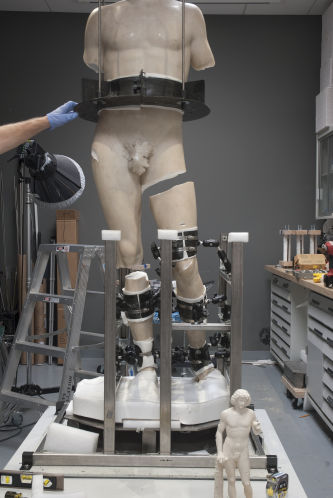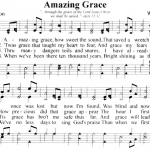In 2014, I’m reading and blogging through Pope Francis/Cardinal Bergoglio’s Open Mind, Faithful Heart: Reflections on Following Jesus. Every Monday, I’ll be writing about the next meditation in the book, so you’re welcome to peruse them all and/or read along.

When I read this week’s chapter of Pope Francis’s book, I was quickly drawn down a wikipedia rabbithole by one particular word Francis chose to use as he discussed how we speak with God in prayer:
By intercession, we gain access to the Father and discover new facets in concrete situations that allow us to change them…. What our intercession makes possible is greater clarity of revelation: God’s power, love, loyalty, and fidelity can never change, since he is always faithful–but they can become more creatively manifest to us in our world.
That is why intercession assumes familiarity with God and the ability to address God with that bold discourse (parrhesia) of which we spoke before.
I looked up parrhesia, and was particularly struck by these two parts of the relevant wikipedia page:
The Greek intellectual concept of parrhesia appears in Midrashic literature as an essential attribute in the transmission of Torah. Connoting open and public communication, parrhesia appears often in combination with the term, demos (publicly). As a mode of communication it is repeatedly described in terms analogous to a Public Domain or Commons. Dimus Parrhesia is closely associated with an ownerless wilderness of primary mytho-geographic import, the Midbar Sinai in which the Torah was initially received. The dissemination of Torah thus depends on its teachers cultivating a nature which is as open, ownerless, and sharing as that wilderness. The term is important to advocates of Open Source Judaism.
And then, this excerpt from Foucault’s Fearless Speech:
So you see, the parrhesiastes is someone who takes a risk. Of course, this risk is not always a risk of life. When, for example, you see a friend doing something wrong and you risk incurring his anger by telling him he is wrong, you are acting as a parrhesiastes. In such a case, you do not risk your life, but you may hurt him by your remarks, and your friendship may consequently suffer for it. If, in a political debate, an orator risks losing his popularity because his opinions are contrary to the majority’s opinion, or his opinions may usher in a political scandal, he uses parrhesia. Parrhesia, then, is linked to courage in the face of danger: it demands the courage to speak the truth in spite of some danger. And in its extreme form, telling the truth takes place in the “game” of life or death.
The funny thing is that the person who is a parrhesiastes before God, who speaks openly, reserving nothing of themself out of caution or desire for strategic advantage, has nothing to fear. The point of parrhesia is furthering total union/communion with God — our natural end. If we approach God in that way, he will receive us with love; there is no analogous danger to the one that Foucault describes if we approach another human in this way. The courage required is in recognizing that this relationship is different than all the other ones we share.
Carrying the openness we have before God into the other spheres of our life is a risk, but it’s also a witness, as the Midrashic discussion implies. Acting as a parrhesiastes is an eschatological sign of something beyond the ordinary functioning of this world. We develop this way of relating by praying in this spirit with God (or, asking to be led into this spirit, if we don’t feel up to it on the first, second, etc try), and then we get a little better at approximating this spirit of self-gift in our other relationships, and awakening a hunger for communion in others.
















